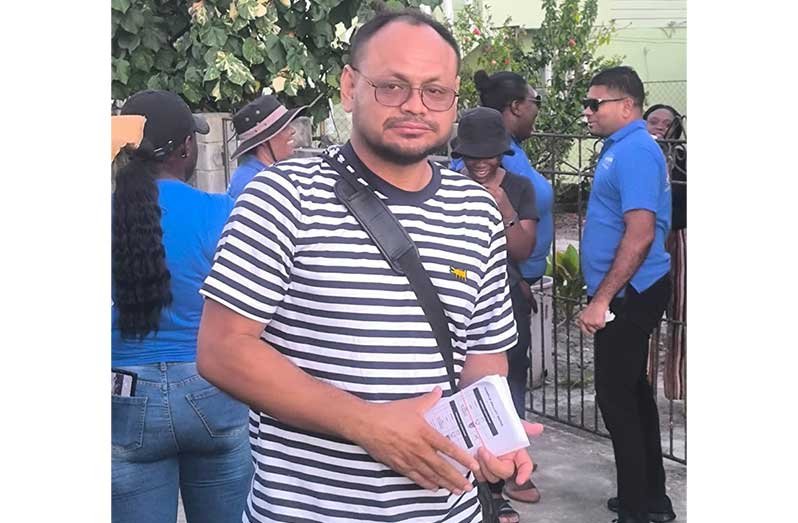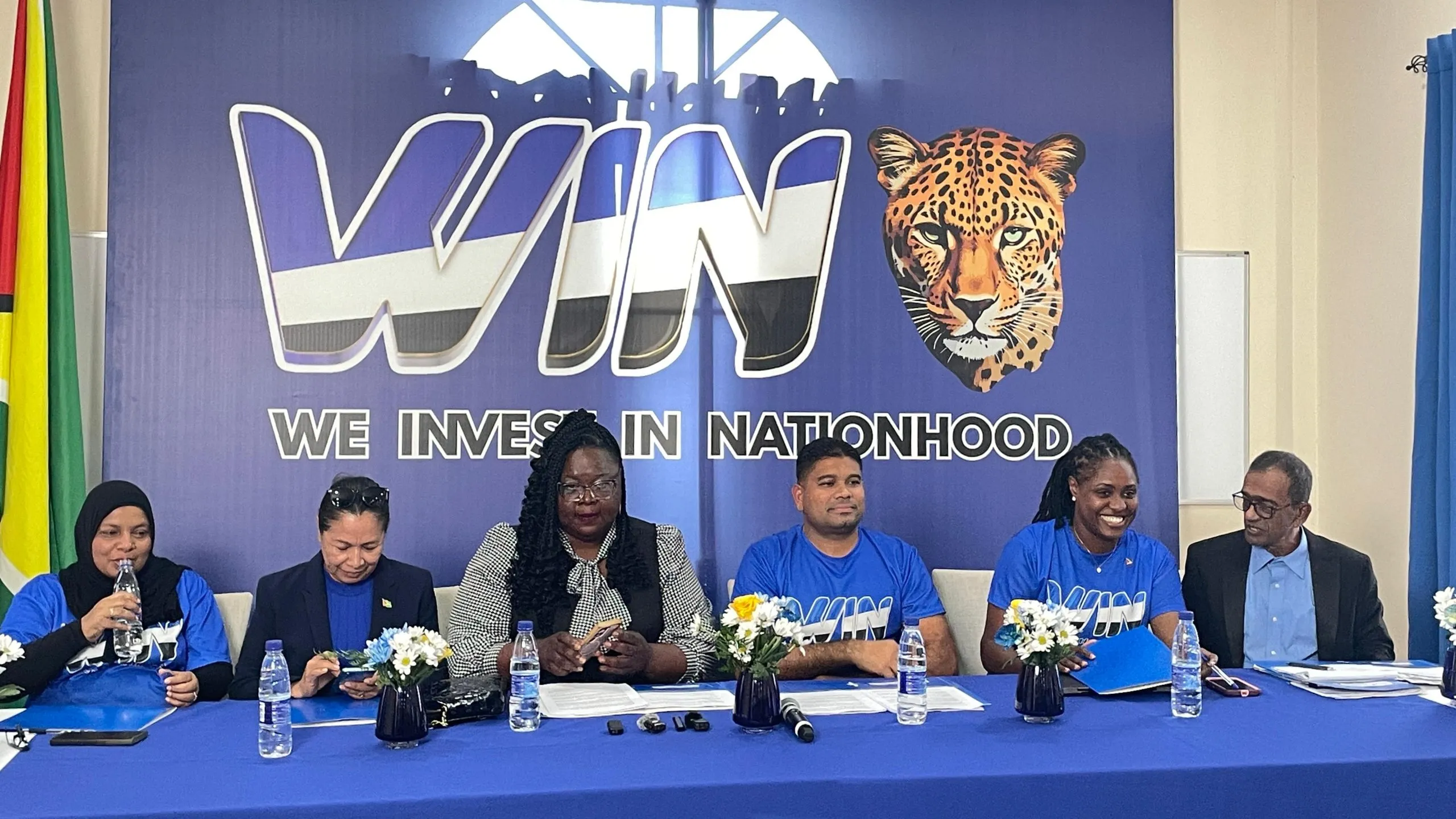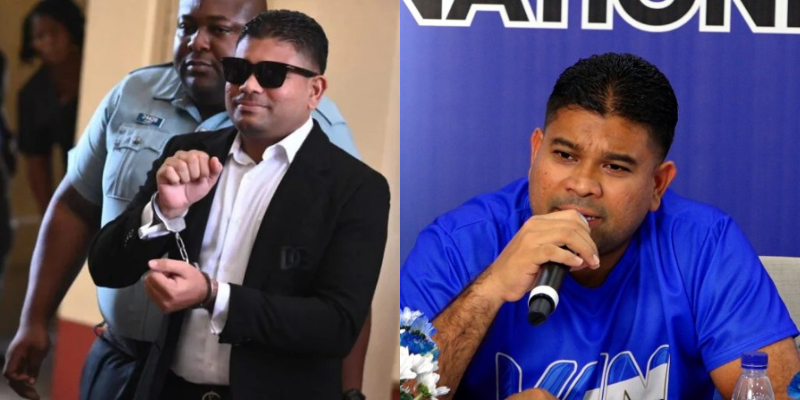Azruddin Mohamed, the now-infamous OFAC-sanctioned gold smuggler and cocaine dealer linked to Colombian cartels, has become a political hopeful and finally shared his “big vision” for Guyana through his personal vanity project, the We Invest in Nationhood (WIN) party. But after all the hype, PR spin, and rented crowds, what did we actually get?
We have a blatant, awkward copy of the People’s Progressive Party/Civic (PPP/C)’s development agenda, poorly repackaged as something new. It’s like buying a fake Rolex on Regent Street and pretending you’re a billionaire.
The WIN manifesto—if you can even call it that—is simply a rebranded PPP brochure with a few buzzwords added. From promises on health care, infrastructure, education, agriculture, to oil and gas, you name every single proposal that repeats initiatives the current government has already launched, implemented, or planned. There’s no originality, no vision, no real policy thinking. It’s like watching someone take your homework, erase your name, and write theirs in crayon.
An important point to note is that during the launch of the WIN manifesto, Mark DeFrance, the chairman of ANUG, whose party had signed a coalition agreement with WIN, was absent. Has Mark DeFrance gotten cold feet because of the sanctions coming from the U.S. authorities?

Let’s closely examine the ‘copycat-in-chief’ Azruddin Mohamed and his manifesto of borrowed dreams.
Healthcare:
WIN promises to “invest in regional hospitals, improve medical technology, and expand access to pharmaceuticals.” Sound familiar? Because it is. That’s exactly what PPP/C’s current plan is, already in progress with several new regional hospitals under construction across Guyana. WIN didn’t just copy the policy—they also copied the sentence structure.
Infrastructure:
The manifesto claims WIN will “transform hinterland roads, modernize bridges, and upgrade drainage.” Kudos, Azruddin, for echoing what the Ministry of Public Works has been doing for the past three years. These projects are already funded, already underway, and—sorry—already someone else’s work. He couldn’t even bother to change the formatting.
Education & Youth:
WIN promises “free university education, tablets for children, and scholarships.” These are PPP promises from 2020 that are already being delivered. Tablets have already been distributed. Scholarships are flowing. GROW (Guyana Online Academy of Learning) is operational. Azruddin is so far behind, he’s trying to campaign on promises already fulfilled.
Agriculture:
He wants to “revive rice production and create agro-processing hubs.” Earth to WIN—those hubs already exist, and rice exports are rising again, thanks to PPP’s policy reforms and private sector incentives. Azruddin seems to be stuck in a time loop.
Oil & Gas:
WIN aims to “maximize local content and create sovereign wealth.” However, Guyana has already enacted a Local Content Law, established a Natural Resource Fund, and hired international auditors—all under PPP/C’s oversight. If WIN gets its way, we might just hand over the oil fields to someone under U.S. sanctions and hope for the best.
Scandal, Not Strategy

And let’s not forget who’s really behind this collection of borrowed ideas. Azruddin Mohamed isn’t a community leader or a servant of the people. He’s a sanctioned businessman accused of tax evasion, bribery, corruption, and siphoning over US$50 million through fraudulent gold exports, according to the U.S. Department of the Treasury.
This isn’t just a rumour; it’s a fact. He and his father were blacklisted by the U.S. Office of Foreign Assets Control (OFAC), and Homeland Security is keeping them under surveillance. These aren’t typical opposition claims — these are international indictments.
And while he parades himself as a “philanthropist,” most Guyanese know better. From flashy drag racing to nude leaks on social media, this is a man who’s embraced scandal as a badge of honor. Many still remember the disgraceful circulation of explicit photos linked to Azruddin’s social circle—evidence of the toxic, misogynistic party culture that follows him like the stench of rotting gold.
He claims he’s investing in the nation, but what he’s really doing is trying to improve his personal image, hoping a run for office will hide the smell of corruption. However, no matter how much cologne you spray on it—a rotten deal still smells rotten.
What WIN Means
Let’s break it down:
- W – Wipe and Copy: Because their entire manifesto is erased from the PPP’s actual achievements.
- I – Illusions: False promises, empty speeches, and grandiose delusions.
- N – Nudity & Notoriety: The only consistent aspects of the WIN brand are scandals, leaked photos, and luxury cars.
Azruddin believes his wealth can buy silence, loyalty, and votes. He’s mistaken. Guyanese voters are sharp. They recognize a counterfeit when they see one. You can’t buy credibility. You can’t bribe your way out of sanctions. And you can’t steal another party’s entire development model and call it a “vision.”
A Word of Warning
This isn’t just a mockery; it’s a public service announcement. Voting for WIN is like handing the country’s steering wheel to someone whose license has been revoked by international law enforcement. If he wins, the economic fallout will be swift and severe. Banks are already shutting down WIN-associated accounts. What’s next? Blacklisted ports? Frozen aid? Exxon pulling out? Maduro walking in?
Guyanese voters: don’t be fooled by gold chains and car shows. Authentic leadership isn’t about appearance; it’s about integrity, service, and a clean record. Azruddin Mohamed lacks these qualities. He’s not running to improve Guyana. He’s running to protect himself.
Read the manifesto first. Then check the news. Finally, toss that manifesto in the trash where it belongs—next to the fake promises, fake policies, and real scandals.
WIN doesn’t stand for the future. It stands for everything Guyana must leave behind.





